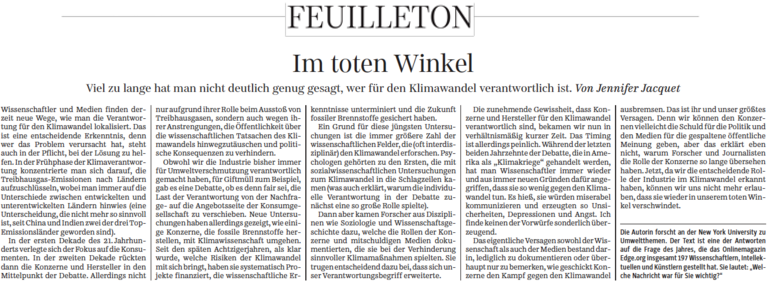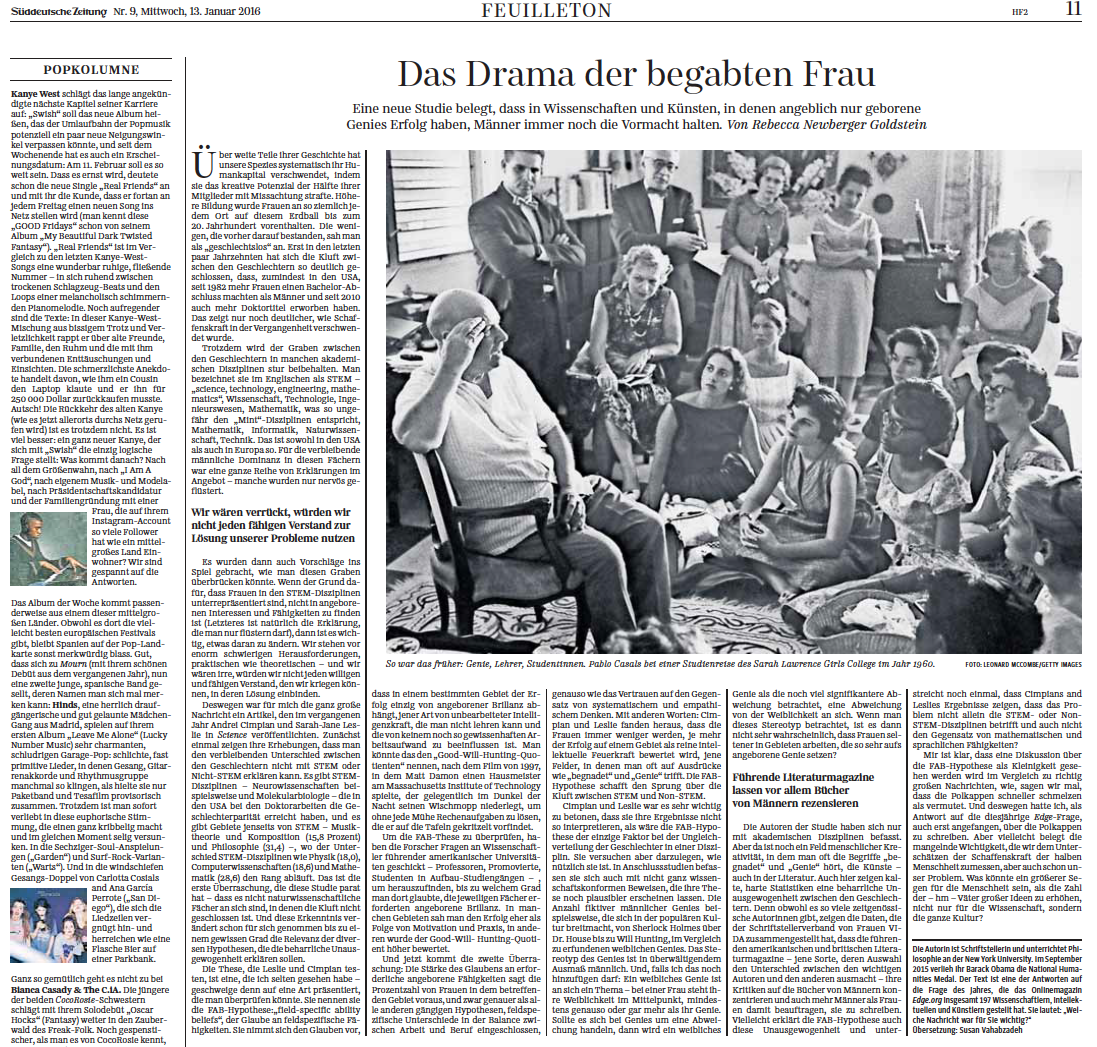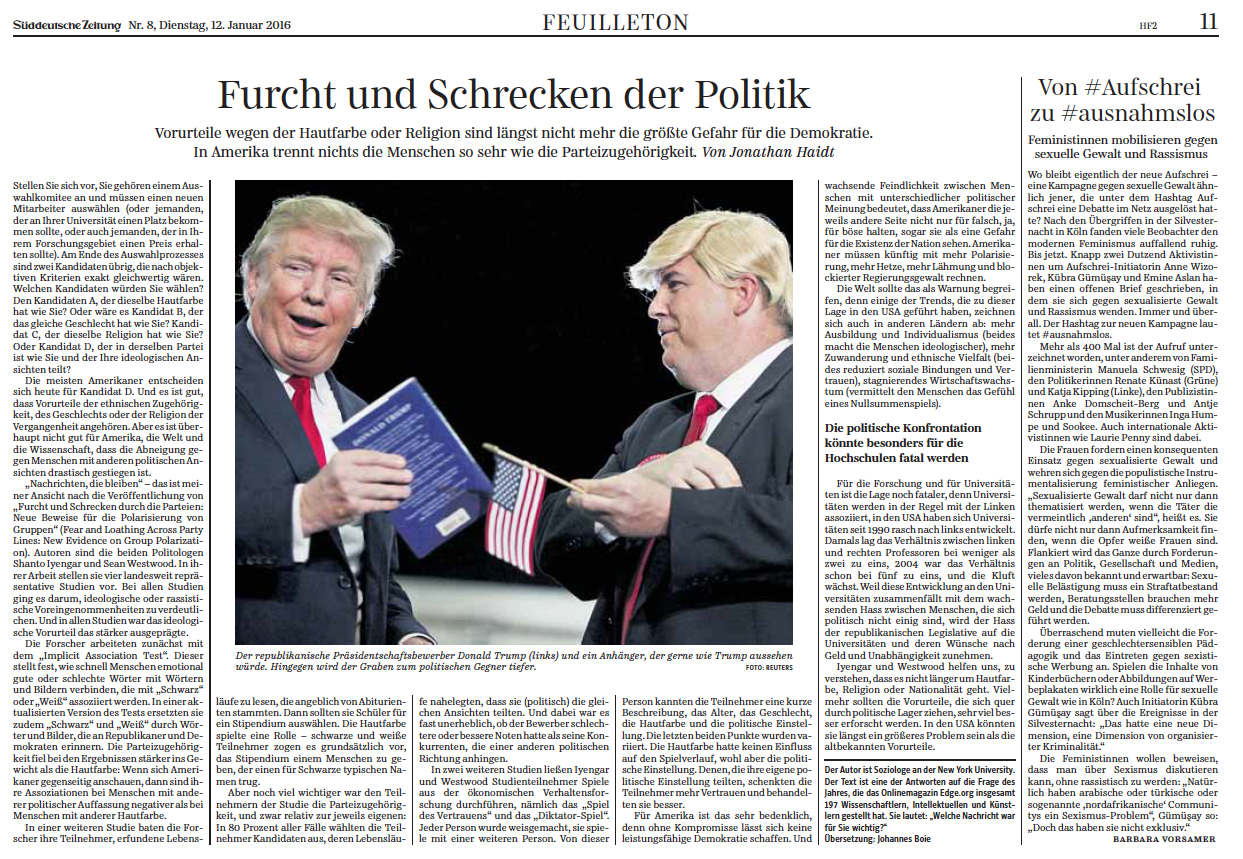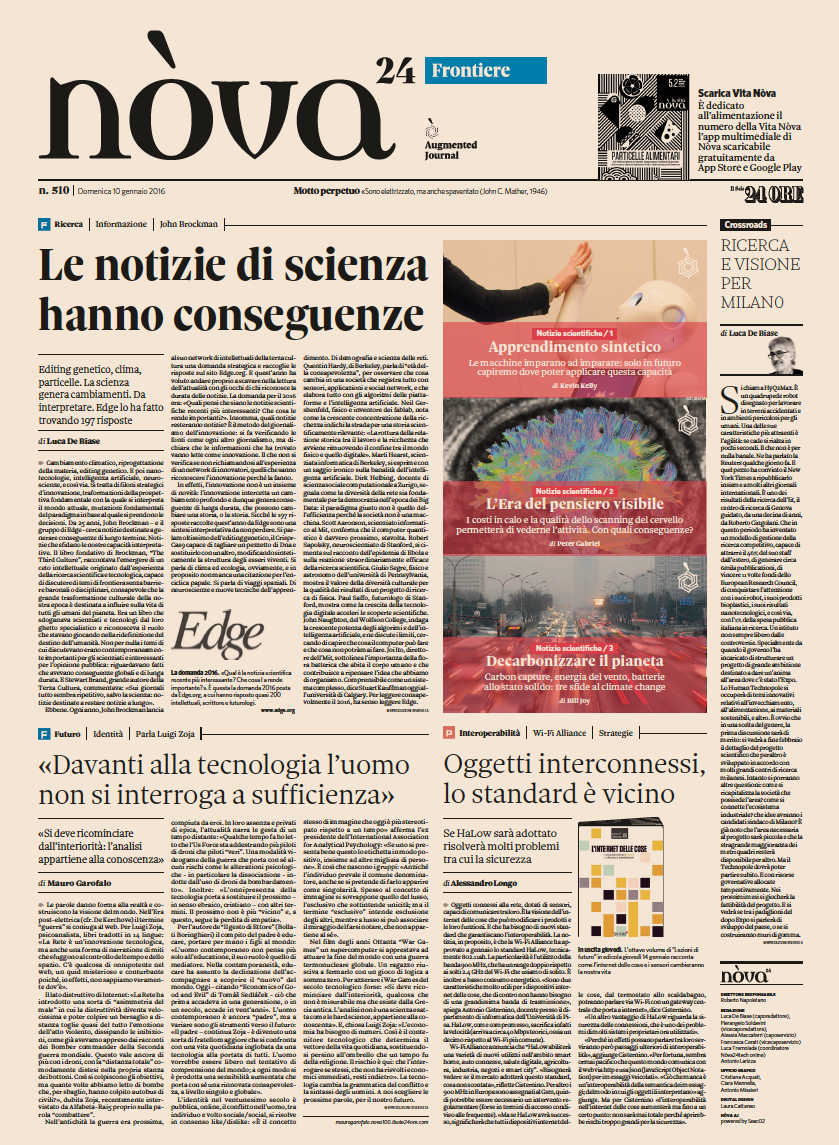Edge in the News: 2016 Annual Question

Once a year, John Brockman asks a question from leading scientists in a wide range of disciplines, whose multifaceted answers are intended to tell something about the current state of knowledge. "What do you think is the most interesting (scientific) news of our time, what is the significance of this news?" was last year's survey. A book that not only spreads future optimism.

Two publishers brought popular scientific books to the market earlier this year, so that the interested layman could simply help to deepen and broaden his knowledge of the current scientific state of affairs. One answers over 100 urgent questions, the other allows nearly 200 scientists to write and explain their most important scientific news item. The questions and the news stories both stem from 2015, but that does not matter. The vast majority has lost nothing to actuality.
Almost daily, newspaper readers get a number of new scientific findings. A remarkable nutritional advice, for example, or a promising medicine, or an ominous event that would point to climate change. For the average newspaper reader, it is impossible to judge whether this is really important, or that the proverbial storm is in a glass of water.
"Scientific pearls" (Know This) wants to offer handles. The composer of the bundle is the American science journalist John Brockman. He is also the administrator of the Edge website, a discussion center for writers, scientists and philosophers. To the most influential scientists and thinkers he has asked the question about what they think is the most interesting and important recent scientific news.

This is the urgent context for Know This. Even as it distills humankind’s capacity for knowledge and unveils learnings of the workings of the universe — from billion-year megatrends to infinitesimal quantum mechanics — it juxtaposes this astonishing progress with humankind’s wilful ignorance about how our actions blight the planet.
[Know This] encapsulates a convincing case for mandatory science literacy and it should be prescribed reading for government cabinets, company boards, and teachers — anyone shaping policies, people’s attitudes, or prioritising and allocating funds for research and development.
As we understand more, it becomes ever clearer that we live in an incredible world. Much of this is made possible by science, and Know This proves there are still more miracles to come.

This week's roundup of books highlights a diverse and exciting array of nonfiction titles.
Know This: Today's Most Interesting and Important Scientific Ideas, Discoveries, and Developments
With so much news on scientific developments inundating us today, how do we tell which are truly revolutionary? And what makes them so important? To help condense the most significant of the new theories and discoveries, John Brockman asked 198 of the world's finest minds which recent scientific ideas they found most significant. From technology to medical research to neuroscience to genetics, this book addresses a wide range of scientific developments, from the likes of Jared Diamond, Steven Pinker, Rebecca Newberger Goldstein, Carlo Rovelli, and Peter Gabriel.

[Mary Lou Jepsen's] vision is broad and sweeping: it runs from a new generation of extremely high-resolution, affordable MRI machines for early detection of cancer, heart disease, and more, to a far-out time (or maybe not so far-out) when machines can read people’s minds and people can communicate—with each other and maybe even with animals—via thoughts.
The idea “leverages the tools of our times,” Jepsen says, citing advances in everything from physics to optoelectronics to consumer electronics to big data and A.I. that can be combined to shrink the size, improve the functionality, and lower the cost of MRI. “I could no longer wait. I’m still writing up the patents. But I am incredibly excited to strike off on this direction,” she says.
The startup, whose name has not previously been released as far as I can tell, is called Open Water (it could also be OpenWater, “not sure yet…either is OK for now,” she says). “Peter Gabriel gave me the name. He is a great advisor,” Jepsen says. In particular, she was inspired by this article he wrote for Edge.org, called Open Water–The Internet of Visible Thought, in which he credited Jepsen for introducing him “to the potential of brain reading devices.”
Mathematician/economist Eric R Weinstein is managing director of Thiel Capital, but that doesn't mean that he thinks capitalism has a future.
In a short, but wide-ranging essay in Edge's Annual Question series (this year's question is "What do you consider the most interesting recent [scientific] news? What makes it important?"), Weinstein talks about the fundamentally transformative nature of software-based societies and the challenges they put to the nature of work and economics. ...

Every year, the site Edge.org a question to about 200 people at the research frontiers. Among those surveyed are geneticists, physicists, philosophers, people who work with artificial intelligence, plus the odd wild card, as Kai Krause (maybe someone will remember the wayward landscape modeling program Bryce; it was his work). The questions of the type "What have you changed your opinion about?" Or "What a scientific idea, it is time to retire?" The aim is to provoke thoughtful responses. This year was the question "What is the most interesting scientific news?"
The answers are not always intellectually dope, but together they provide a snapshot of what is going on in the various research fields. What will we learn about in the next few years? Bacteria. The realization that man is dependent on the interaction with bacteria and parasites are breaking through.The bacteria on us and in us control gene activity in our bodies, writes bioantropologen Nina Jablonski. A poorer bacterial flora can lead to obesity, allergies, possibly autism. Perhaps we will soon see ads for bacterial smoothies to everything from obesity to depression.

There is a community called Edge, which publishes non-fiction materials written by scientists. In particular, in recent years it has annually announced "the question of the Year" and the answers to it by leading scientists of the world. The question of 2016 was the following: "What do you think is the most interesting recent scientific news? What makes it important? " In response, 198 scientists participated from different fields ... Each question is carefully thought out ... a sort of voiced firsthand digest of the new learned science ...

From Gene-knives and autistic neurons: The Scholars Association "Edge Foundation" asked well-known researchers, what is revolutionizing the sciences.The result is a fascinating kaleidoscope of new knowledge and methods.
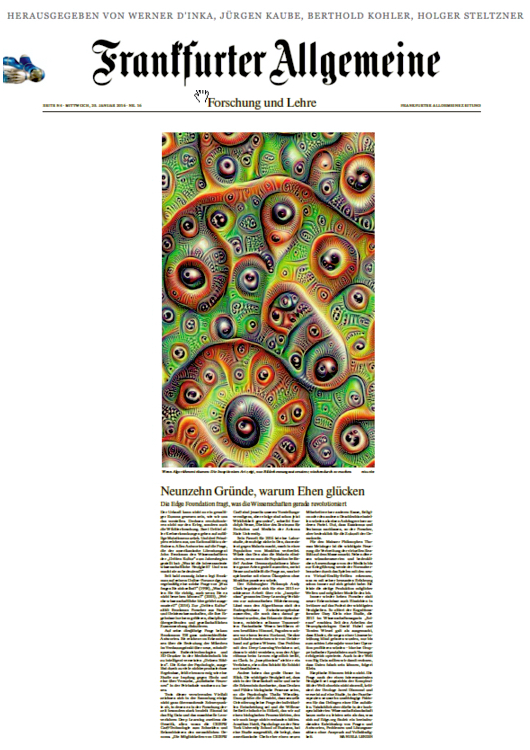
The big bang may not have been such a huge thud, as we imagine. Drones revolutionize not only the war, but also the research on wild animals. Two-thirds of all cancers are due to random mutations. And three principles are sufficient to define rationality. All answers to the question placed before the scientists of the "Third Culture" of American literary agent John Brockman: "What is the most interesting scientific news? And what makes them so important?"
For almost twenty years Brockman puts on his online forum edge.org regularly such a question: "What do you think is right, even if you can not prove it?" (2005), "What do you ask yourself?" (1998), "What is the scientific idea is ready for retirement?" (2014). For "Third Culture" is one of Brockman researchers from natural sciences and humanities, discuss their findings in a larger, multi-disciplinary and social context.
In his this year's question Brockman got 198 very different answers. They range from knowledge about the importance of microbes in the digestive tract of new, resource-saving battery technologies and 3D printers in the medical technology to intelligently networked "green cities". The crisis of psychology, triggered by too many non-reproducible results, just missing a little like a study for vaccination against Ebola and one of the testing, "autistic neurons" to grow in the petri dish. [Continue...]
Read highlighted contributions from: Randolph Nesse, Andy Clark, Thalia Wheatley, Thomas Metzinger, Gary Klein, Jared Diamond.

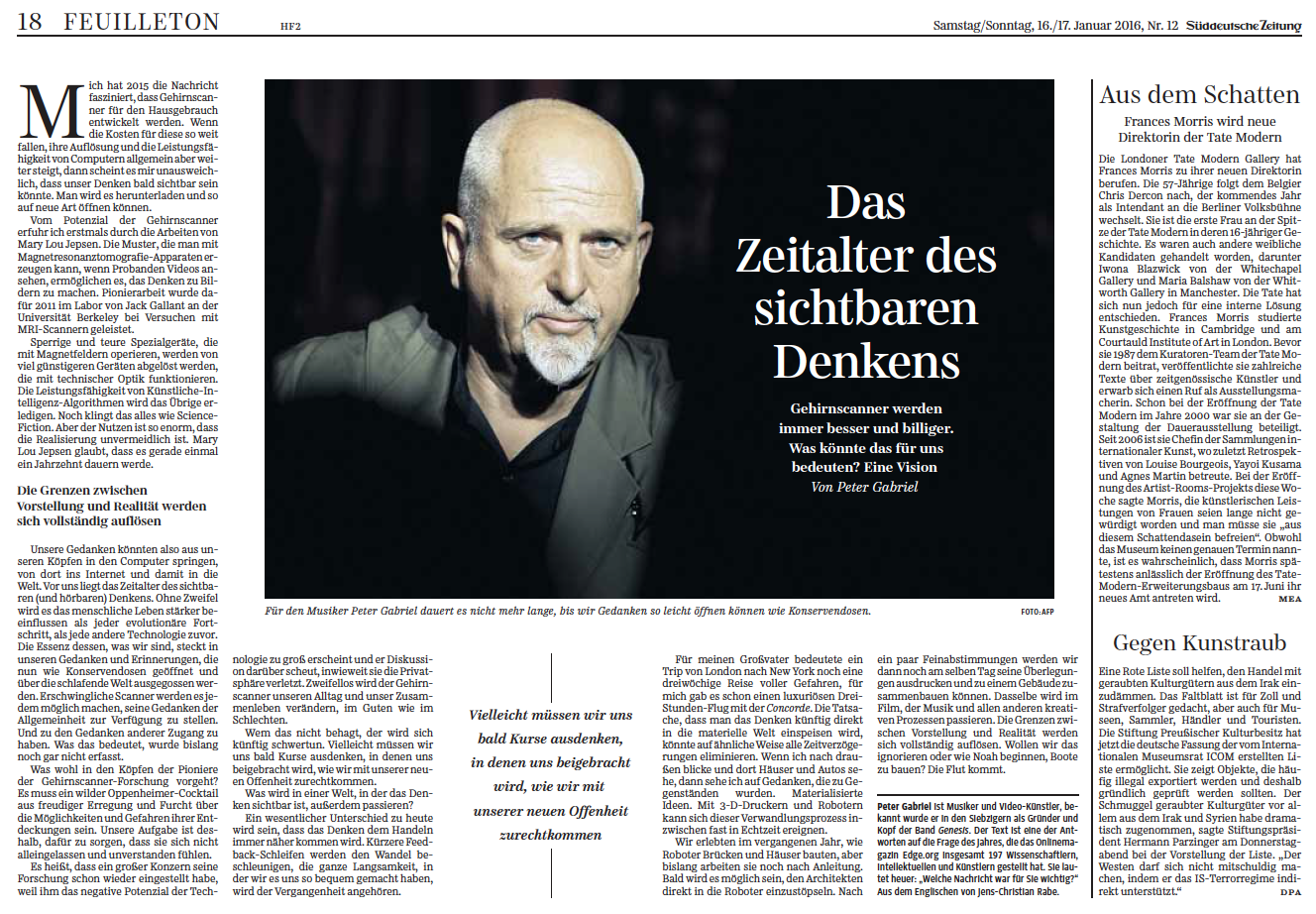
Caption: For musician Peter Gabriel it might not take long until we open our thoughts as easily as a can.
Brain scanners are getting better and cheaper. What could this mean for us? A vision. By Peter Gabriel

Scientists and the media are establishing new ways of looking at who is responsible for anthropogenic climate change. This expanded view of responsibility is some of the most important news of our time because who we see as causing the problem informs who we see as obligated to help fix it. By Jennifer Jacquet

A new study shows that men still hold the power in fields of science and art where supposedly only born geniuses succeed. By Rebecca Newberger Goldstein

Prejudice because of race or religion are no longer the biggest threat to Democracy. In America, nothing divides people so much as the party affiliation. By Jonathan Haidt

What do the United States, Suriname, Papua New Guinea and Tonga have in common?
These countries are among the few worldwide that don't offer paid maternity leave at the federal level for new mothers. ...
In a lovely short essay at Edge.org, psychology professor Linda Wilbrecht, a colleague at UC Berkeley, highlights what we do — and don't — yet know about the impacts of early life experiences on later development. High-quality childcare — whether it comes from mom or other caregivers — and a rich, stable environment could have important downstream consequences for individuals and for society.
Wilbrecht's essay is worth a read...

An answer to the "Edge" question of the year: "What Do You Consider the Most Important News?": It has never been as good for humanity as it is today. But progress can only continue if one understands it. By Steven Pinker
[ English, Edge.org | German Translation ]
Introduction: The Club of Edgy Thinkers
By Andrian Kreye, Feuilleton Editor, Süddeutsche Zeitung
Edge.org’s question of the year. What has existed on the website for the past twenty years, presented under the banner of the "Third Culture," is ultimately a classical salon in the digital space. In its initial form Edge was already a club of “edgy” thinkers.
Between 1981 and 1996, the "Reality Club" met in New York in pubs, clubs and apartments. Forerunner of Reality Clubs were notable developments. First, a series of dinners in 1965 organized in the kitchen of a New York townhouse where composer John Cage cooked mushrooms for a group of young New York avant-garde artists, holding forth on the ideas of Norbert Wiener (cybernetics), Marshall McLuhan (communication theory), Buckminster Fuller (systems theory), and Norman O. Brown (social philosophy), among others.
During that same time period, Brockman was invited to co-organize a seminar on cybernetics at Massachusetts Institute of Technology between a group of New York artists and those scientists (colleagues of Wiener, who had died the year before) who were pioneers in the field of cybernetics. The aim of such events was to consider ideas scientific ideas and also to have the artists and scientists ask each other the questions they were asking themselves.
When asked, Brockman takes the tradition much further back. One of the first of such circles is the "Lunar Society of Birmingham” at the end of the 18th century. The scientists, industrialists and philosophers who gathered for dinner included Charles Darwin's grandfather Erasmus. Another member was Benjamin Franklin, a scientist and later a founding father of the United States.
Last year we published excerpts from the answers to the 2015 Edge Question "What do you think of machines that think?". The Question this year was: "What Do You Consider the Most Interesting Recent [Scientific] News? What Makes It Important?” Because the open formulation of this year’s question brought so many differing and detailed answers, the Feuilleton Section of SZ is publishing one unabridged text every day this week. The first is written by the cognitive scientist Steven Pinker. This is followed by the social scientist Jonathan Haidt, the philosopher Rebecca Newberger Goldstein, the environmental researcher Jennifer Jacquet, the rock singer Peter Gabriel, the psychologist Gerd Gigerenzer and the behaviorist Michael McCullough. All 197 answers are available on Edge.org in the original English.

Each year, Edge.org editor John Brockman poses a provocative question to a select group of thinkers. For this year’s installment, nearly 200 brainy contributors were asked: “What do you consider the most recent scientific news?” Here’s what they had to say.
As Brockman notes, “We now live in a world in which the rate of change is the biggest change.” Science, therefore, has “become a big story, if not the big story: news that will stay news.” But given the insane amount of science-related news that makes the rounds on a daily basis, it’s not immediately clear which sciency tidbits are the ones we should be focused on.
To help him parse through this staggering amount of science—and to provide a 50-foot perspective on where we are right now—Brockman recruited some of the biggest names in science, technology, art, and philosophy. Contributors included Martin Rees, Steven Pinker, Gloria Origgi, Freeman Dyson, Max Tegmark, Judith Rich Harris, Peter Gabriel, Nina Jablonski, Bill Joy, Michael Shermer, Kevin Kelly, Gregory Benford, Sean Carroll, Frank Tipler, Steve Omohundro, and many, many others. ...
Online Thinkers forum frontier (Edge.org) since 1998, has put forward thought-provoking topics every year, such as '98: What questions are you asking yourself?; '99: What is the most important invention in the past 2,000 years?; 2006: What is your dangerous idea?; Last year: What do you think about machines that think? This year, editor John Brockman, got nearly 200 thinkers: What do consider the most interesting recent [science] news? What makes it so important?
As a result, 198 experts from physics, astronomy, psychology, archeology, biology, history, computer science, etc. each wrote an essay, including Steven Pinker, Peter Gabriel, Nina Jablonski, Bill Joy, Michael Shermer, Kevin Kelly, Gregory Benford, George Church. ... Several hot topics ran as expected, including research cancer and other diseases, pollution, genetic research, artificial intelligence, quantum physics and gravity research, to find Earth 2.0 and extraterrestrial life. ...


At the end of every year, Edge reaches out to the smartest people on the planet and asks them a single question in an attempt to find the ideas and concepts that are changing the world of science. This year’s two-part question was: “What do you consider the most interesting recent [scientific] news? What makes it important?”
Not surprisingly, this year’s set of 197 responses converged around a few key themes – the human brain, the human genome, space exploration and artificial intelligence. Based on these responses, here are 10 of the edgiest innovation buzzwords that have the greatest potential to change the trajectory of innovation in 2016. ...
Read highlighted contributions from: Max Tegmark, George Dyson, Melanie Swan, Christian Keysers, Abigail Marsh, Kevin Kelly, W. Tecumseh Fitch, Stewart Brand, Thomas Metzinger, and Mark Pagel.

It is time once again for the Edge Annual Question, a mind-bending and boundary-busting online convening of scientists, technologists, and other big thinkers all responding to a single question at the intersection of science and culture. From physicists to artists, cognitive psychologists to journalists, evolutionary biologists to maverick anthropologists, these are people who Edge founder, famed literary agent, and BB pal John Brockman describes as the "third culture (consisting) of those scientists and other thinkers in the empirical world who, through their work and expository writing, are taking the place of the traditional intellectual in rendering visible the deeper meanings of our lives, redefining who and what we are."
This year, John asked: What do you consider the most interesting (scientific) news? What makes it important?" Nearly two hundred really smart people responded, including Steven Pinker, Nina Jablonski, Freeman Dyson, Stewart Brand, Marti Hearst, Philip Tetlock, Kevin Kelly, Lisa Feldman Barrett, Douglas Rushkoff, Lisa Randall, Alan Alda, Jared Diamond, Pamela McCorduck, and on and on.

Big advances in astronomy and genetics
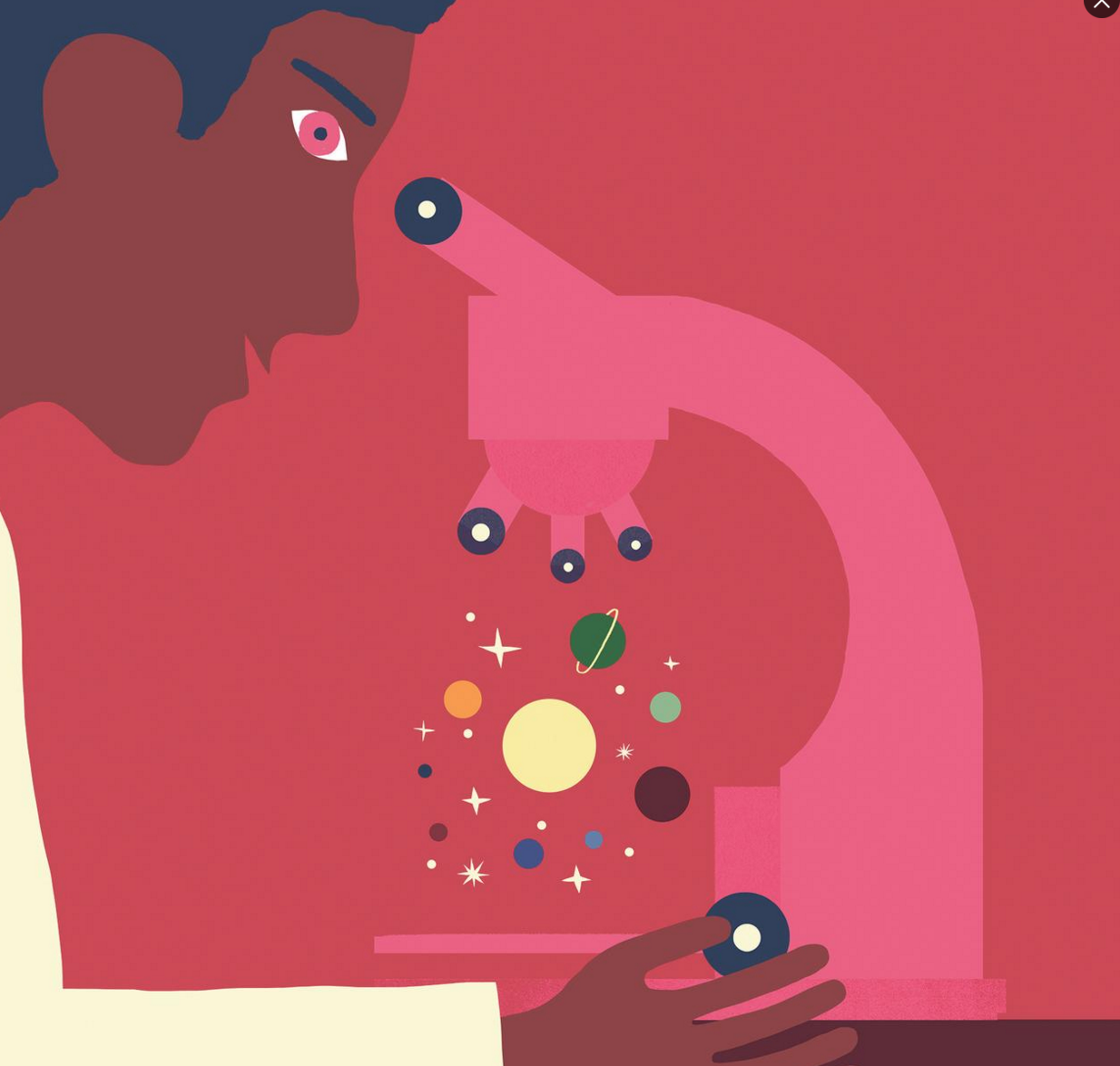
Every year on the website Edge, scientists and other thinkers reply to one question. This year it’s “What do you consider the most interesting recent news” in science? The answers are fascinating. We’re used to thinking of news as the events that happen in a city or country within a few weeks or months. But scientists expand our thinking to the unimaginably large and the infinitesimally small.
Despite this extraordinary range, the answers of the Edge contributors have an underlying theme. The biggest news of all is that a handful of large-brained primates on an insignificant planet have created machines that let them understand the world, at every scale, and let them change it too, for good or ill. ...

Advances in biology and cosmology have dominated the science year
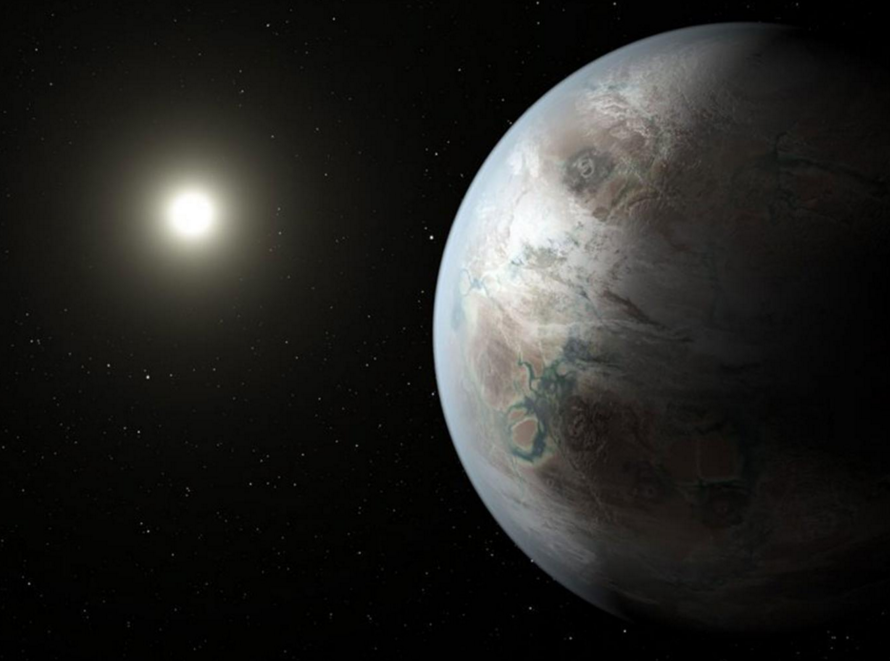
Growing a “brain in a dish”, the prospect of creating designer babies, and the possibility of detecting the first signs of extra-terrestrial intelligence – these are just some of the most important scientific news stories of 2015, according to some of the world’s leading scholars celebrating the year’s achievements.
The question posed to the top thinkers was this: what do you consider the most interesting recent scientific news and what makes it important? Back came a smorgasbord of essay-length answers from more than 100 contributors to Edge.org, the online salon for scientists, philosophers and followers of the “third culture” merging science and the humanities. ...
Read highlighted contributions from: Mark Pagel, George Church, Simon Baron-Cohen, Alison Gopnik, Mario Livio, Martin Rees.

